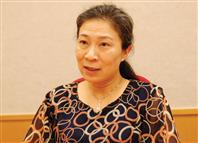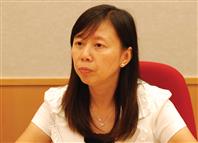What did you read first when you received your writing assignment from your teacher in primary school? The grade or the comments? What did you consider more important when you got your transcript upon graduation from university? The GPA or what you learned all those years? Now, what do you care the most about when your supervisor hands you your performance review report? Whether you got 5.6 in the overall rating or whether you have made progress on your chosen career path?
‘When they get the reports filled in by their reviewers, they’ll go straight to the overall ratings. Everybody does it. It’s a natural human thing,’ said Dr. Colin Storey, University Librarian of the University Library System (ULS). He believes that what really says something about an individual is the parts about his or her accountabilities and competency. ‘They’re not just about a ratings number. It’s the whole report that is really critical, not simply the fact that they get 5.9 or 3.1.’
A System Aimed at Awarding Employees and Facilitating Communication
This year sees the fourth review cycle since the introduction of the Performance Review and Development System (PRDS). The ULS is one of the departments in the University that have conducted productive performance reviews and produced constructive review reports.
Dr. Storey admitted that when the system was introduced, he thought that an annual review was too much, particularly for departments with larger staff numbers. ‘But now seeing it in practice, and seeing those reports going to relevant committees for rewards, I can understand how an annual one is quite useful.’
Ms. Lee Shun-king Corinna, assistant director of personnel at the Personnel Office (PO), added, ‘The system has provided us with a basis for human resource management decisions. For example, in cases of offering somebody promotion or a continuous contract, we can track their performance review reports to see if their performance has been consistently good. This provides us with some justification.’
Dr. Storey agrees with her. He believes that the PRDS allows his line managers to identify and track the progress of excellent staff, and place it on record. ‘This is crucial, since they may be rewarded later, either through the Performance-Linked Reward Scheme, by promotion or continuous appointment.’
He also sees the PRDS exercise as a chance at least once a year for reviewers to sit down to have a formal, personal conversation with their staff. ‘For example, for fellow professionals I look at their career tracks and talk to them about where they think they’re going, in terms of the work within the ULS and also professionally in their general career aims, whether in any sense we can help.’
In addition to awarding high-performing employees, the system is also aimed at promoting communication between managers and their subordinates. By setting out accountabilities, managers can make their subordinates understand their expectations. The system requires these managers to monitor their subordinates’ progress and problems with their work, and to be aware of their career aspirations. The system also encourages reviewees to make their views known.
Ms. Ivy Cheung, personnel manager, said that when the system was first introduced, many reviewers had no idea how to define the accountabilities of their reviewees. ‘For example, how can I weigh a driver’s accountabilities in terms of percentage? Their job duty is nothing but driving. We would guide them to think this way: in addition to driving, does he have to make sure that the car is clean? Does he have to treat passengers politely and provide punctual and safe services? With hints like these, they will get the idea.’





































































































































































Social Bookmarks